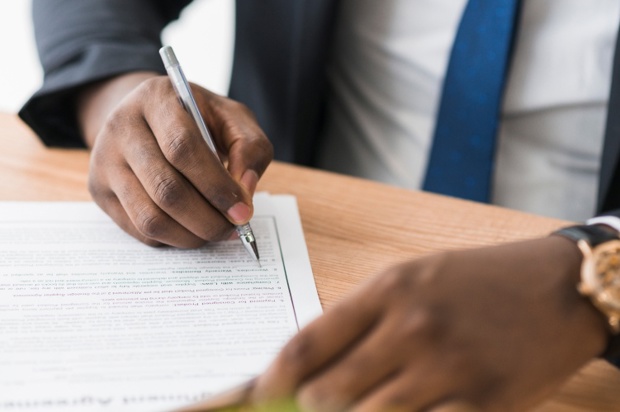What is a Power of Attorney?

A Power of Attorney in Scotland is a legal document that gives someone else the authority to take actions or make decisions on your behalf.
You choose the person you wish to help you, known as an Attorney, and decide what powers they should have. This legal arrangement can cover decisions about your financial and property matters, as well as your personal welfare and medical care.
By setting it up in advance, you retain control over who will manage your personal and financial affairs if you’re ever unable to do so yourself due to illness, injury, or a loss of mental capacity.
Why Should I Grant a Power of Attorney?
The purpose of granting a Power of Attorney is to ensure that, if you become unable to manage your day-to-day finances or make decisions about your welfare matters, your interests are safeguarded by someone you trust. This could include decisions relating to your daily routine, medical decisions, or property matters.
If a Power of Attorney is not in place, your family may need to apply to court to obtain the necessary legal authority—an often time-consuming and costly process. Without this, banks and other organisations won’t accept instructions, even from close family members.
Court-appointed powers often involve ongoing costs, such as annual reporting to the Office of the Public Guardian and compulsory insurance.
What Would Happen Without a Power of Attorney?
If you were to lose mental capacity or become seriously unwell and had not appointed a Power of Attorney, no one—not even your closest family members—would have automatic authority to manage your financial or personal affairs. Banks, healthcare providers, and other organisations require formal legal authority before they will act on instructions. Without this, important decisions and everyday tasks may be delayed at a time when action is urgently needed.
The Impact on Your Family
In these situations, your loved ones may need to apply to the court for the right to make decisions on your behalf. This process, known as a guardianship application, can be lengthy, expensive, and emotionally difficult. It involves legal paperwork, potential court hearings, and often comes at a time when your family is already under considerable stress and pressure. Even with the best intentions, this route can place an unnecessary burden on those closest to you.
Why It's Important to Plan Ahead
Without a Power of Attorney document in place, there is no guarantee that the person appointed by the court will be someone you would have chosen. The process can also involve ongoing responsibilities, such as annual reporting to the Office of the Public Guardian and paying for compulsory insurance. By setting up a Power of Attorney in advance, you retain control over who makes decisions for you and ensure they can act quickly and confidently, avoiding unnecessary delays and complications.
Frequently Asked Questions
In our experience, the earlier the better. Many people delay until later life, but a Power of Attorney can only be granted while you have legal capacity—meaning you are capable of understanding the nature and consequences of the document.
Sadly, once someone loses capacity, whether through illness such as advanced dementia or sudden injury, it is too late to grant a Power of Attorney. In such cases, the court process becomes the only option.
People often associate Powers of Attorney with older age, but they are just as relevant when buying a home, starting a family, or planning for the future. Just as you might prepare a Will early in life, it’s sensible to put a Power of Attorney in place to protect your interests in case of unexpected incapacity.
It ensures that, in the event of incapacity, your chosen Attorney can make urgent and long-term welfare and financial decisions on your behalf, including matters of medical treatment, care arrangements, or managing money matters.
Our Private Client team has extensive experience in preparing and registering Powers of Attorney in Scotland. We will support you throughout the process.
A member of our team will meet with you—either in person or remotely—to discuss your needs and take your instructions. We will then prepare a tailored Power of Attorney form.
Once you are satisfied with the draft, a further meeting will be arranged for signing. A certificate of capacity, confirming that you understand the document, must be signed by a solicitor or, in some cases, a medical practitioner such as a medical doctor.
The final document is then submitted to the Office of the Public Guardian for registration. We recommend registering the PoA document promptly, even if you do not expect to use it straight away. We can securely store your registered Power of Attorney until it is required.
A Continuing Power of Attorney gives someone you trust the legal authority to manage your financial and property affairs. This includes responsibilities such as managing bank accounts, paying bills, handling investments, and making decisions about property. It can take effect as soon as it is registered, or only if you lose mental capacity—the choice is yours, and we will guide you through the decision. This type of Power of Attorney helps ensure continuity and financial stability if you are no longer able to manage these matters yourself.
A Welfare Power of Attorney allows your chosen Attorney to make decisions about your health and personal welfare, but only once you have lost capacity to make those decisions yourself. These decisions might include medical treatment, care arrangements, where you live, and your day-to-day wellbeing. It provides reassurance that someone you trust is legally able to act in your best interests, especially in situations where urgent welfare decisions are required.
A Combined Power of Attorney brings together both continuing and welfare powers in one document. This means your Attorney can manage your finances and property, as well as make decisions about your health and personal care, depending on your capacity at the time. It is the most commonly recommended option, as it provides comprehensive coverage and there is no additional cost for including both types of powers. It ensures that, whatever happens, someone you trust is authorised to act on your behalf without delay.
A diagnosis of dementia—whether in its early or later stages—can significantly impact a person's ability to make decisions over time. A Power of Attorney allows you to plan ahead while you still have mental capacity, ensuring that someone you trust is legally authorised to act on your behalf when needed.
If a Power of Attorney is not in place before capacity is lost due to dementia, your loved ones may need to apply to the court for a guardianship order. This process can be lengthy, expensive, and emotionally difficult—especially during an already challenging time.
By setting up a Continuing and Welfare Power of Attorney early on, you retain control over who will make decisions for you—covering both financial matters and important welfare decisions, such as medical treatment and care arrangements. It gives peace of mind to you and those closest to you, knowing that your wishes can be respected as your condition progresses.
We’ll guide you through every detail of the creation of the Power of Attorney, but key decisions include:
- What types of power you wish to include: a Continuing Power of Attorney (for financial and property affairs), a Welfare Power of Attorney (for health and personal care), or a Combined Continuing and Welfare Power of Attorney. We typically recommend combining both, as there is no additional cost for doing so.
- Who you wish to appoint: Your welfare attorneys or continuing attorneys can be family members, friends, or professionals. You may appoint one or more individuals and specify whether they act jointly or independently.
- Whether you want to appoint joint Attorneys or nominate a substitute Attorney, to ensure continuity if one becomes unable to act.
We will discuss the extent of powers and ensure your document reflects your wishes and personal circumstances.
At Drummond Miller, we believe in providing clear and transparent guidance from the outset. We’ll take the time to discuss the likely costs with you at your first consultation — with no obligation to proceed.
Our fees for preparing a Power of Attorney start from £250 plus VAT (£300 in total). In addition, there is a registration fee payable to the Office of the Public Guardian, currently £96, which we can guide you through and help you prepare for.
We’re here to ensure the process is straightforward and fully explained, giving you confidence that your affairs are in order — both now and in future.
Planning Ahead Starts with the Right Legal Support
We cannot overstate the importance of putting a Power of Attorney in place—it's a key part of future planning, just like making a Will.
Whether you wish to instruct us or simply find out more, we are here to help. Our experienced solicitors will offer independent advice tailored to your situation and will take the time to explain your options clearly and compassionately.
We’re here, to get you there.
- Call us on 0131 226 5151

